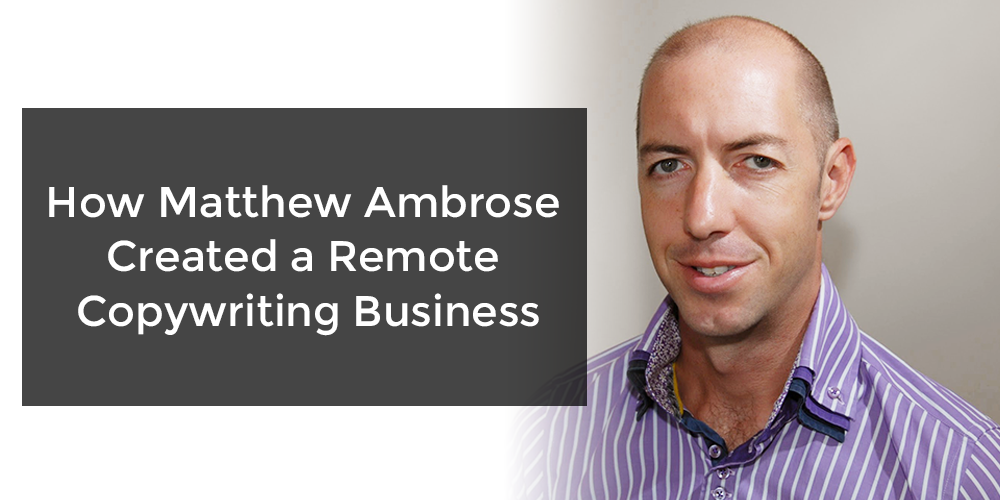For the twelfth episode of the DNQ Interview Series, I’d like to welcome Matt Ambrose, owner of The Copywriter’s Crucible. I met Matt after unintentionally organizing a nomad work sesh/meetup in Lisbon, Portugal. I had never met a full-time copywriter and thought it was super cool that he created his own agency on the road. To be a successful copywriter running your own business is extremely difficult. Lots of people want to do it, but not many are able to break through and make a living off of it. It takes a lot of skill and experience. I thought my readers would benefit from learning more about what it takes, so I interviewed Matt about his journey starting up as a digital nomadic copywriter.
How Matt Ambrose Created a Remote Copywriting Business
Sharon: Tell us about yourself!
Matthew: I’m Matthew Ambrose, a direct response copywriter focused mainly on the US B2C market.
Sharon: When did you become a digital nomad and how has the journey been?
Matthew: 2009 when I first moved to Malta. I lived there for 4 years then felt the travelling itch, and have been switching between SE Asia and Europe ever since.

Sharon: When and how did you know you were passionate about copywriting to the point where you wanted to build your own company around it?
Matthew: I always said I wanted to be a writer when I was at school. But when I left university reality kicked in and instead of following my dreams I chased after the money working in the corporate world. I felt like I was rolling a boulder up a hill every week to see it come crashing down by Monday morning. So one day I quit and started my career again at 26 as a copywriter.
Sharon: Before you got started with The Copywriter’s Crucible, how did you find your first few freelancing contracts?
Matthew: I went freelance full time from day one. Not sure whether you’d say this was naive or ambitious (probably somewhere down the middle). I got my first few jobs by going to networking events, getting people’s website addresses and then emailing them to tell them (politely) how bad they were and how I could improve them. To get clients you need to tell them how you will solve their problem, and not just what you do.
Sharon: Did you have to learn about online marketing and SEO to become a good copywriter?
Matthew: Absolutely. You can’t be a decent copywriter unless you know about all the marketing channels. The more knowledge you bring to the table the more valuable you are to clients (and the more you can charge).
Sharon: Did you create your website yourself?
Matthew: Yep. My first site was built with Dreamweaver (yes, I’m that old) before I discovered WordPress. Back then it was purely a blogging platform, so you could say I was ahead of the curve using it to build a business website.
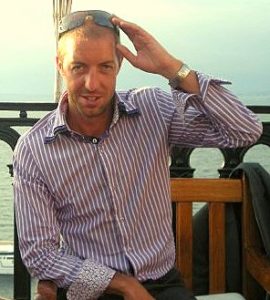
Sharon: Haha I see – being ahead of the curve is what counts! How long did it take for you to get your business to a point of stability and continuous work?
Matthew: 8 years. I had some early successes, but to reach the stage where work was consistently coming in without having to waste time on bidding sites and emailing tons of people took me this long.
Sharon: How do you market your business?
Matthew: I was page 1 on Google for ‘copywriter’ (just below Wikipedia) back in 2008. But then I got hacked by some Russians and my website was used as part of a botnet. Long story short, Google found out, told me to delete the whole thing and I’ve never got my page 1 ranking back since. But no bother, as I get most clients from referrals these days. If I ever need to generate leads, I’ll build a funnel by running ads on Facebook and Bing to advertorials on my website.
Sharon: What’s your #1 channel of getting leads? Can you tell us about your 7 day crash course e-mail offer?
Matthew: Email courses are one of the best lead magnets to create as open rates can be crazy high (50% is realistic). Whereas with eBooks, people tend to use ‘burner’ email addresses and eBooks can just be left to gather digital dust on their hard drive. My offer isn’t really to get leads for my business but to build an email list that I can upsell other courses to occasionally.
Sharon: What’s been the biggest challenge so far with 1. being a digital nomad 2. the freelancing life/owning your own business?
Matthew: 1. Staying somewhere long enough to build a network of friends rather than acquaintances.
2. Managing financial matters, such as best place to setup a company (I hear so much conflicting advice) and where to invest the profits. Also getting a mortgage will be tricky so I’ll likely have to buy a property outright. The plan is to save enough money and get fed up with travel at the exact same moment.
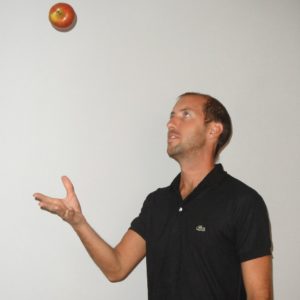
Sharon: I relate to your challenge that comes with being a digital nomad! What are your future goals in terms of your career?
Matthew: Having retainers with a small list of clients and finding a media buyer to partner with so I don’t need clients at all.
Sharon: What would you recommend for beginners who want to start their own copywriting business?
Matthew: Get some experience working in an agency, even if it means working for free or a low rate. Network in your local area and complete the Copyhour course at least once and join Copychief as soon as you can afford it.
Sharon: Any last words?
Matthew: Don’t read the news too much but focus on engaging with content that’s healthy for your mind and business. It’s good to be aware of what’s happening in the world. But the news will always be overwhelmingly negative because that’s what gets clicks. If you read the comments you start losing your faith in humanity altogether.
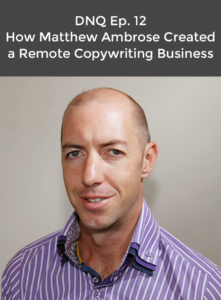
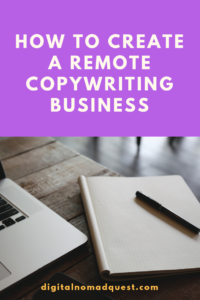
I’d like to thank Matthew for speaking with me! I learned a lot about the hustle involved with starting your own copywriting business and the different marketing methods you can use to help gain clients.
Resources mentioned:
If you want to get in touch with Matthew Ambrose here are his links!
The Copywriter’s Crucible
LinkedIn

